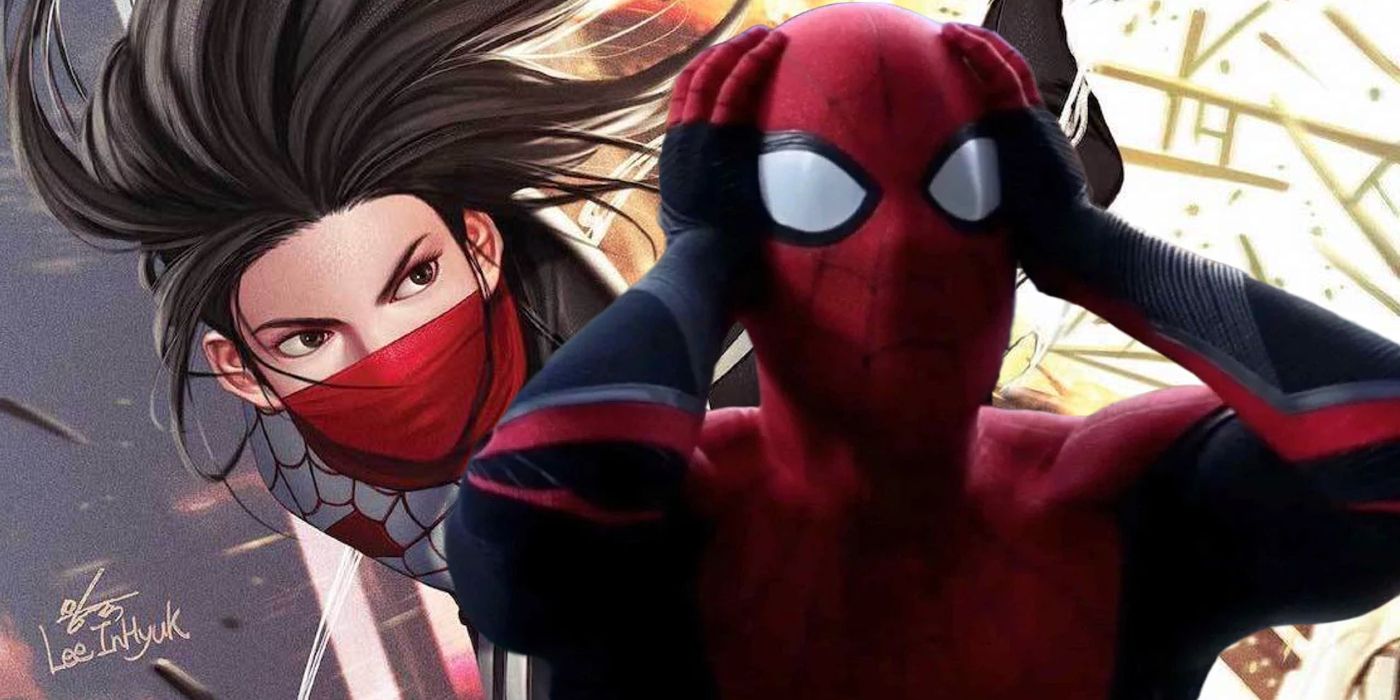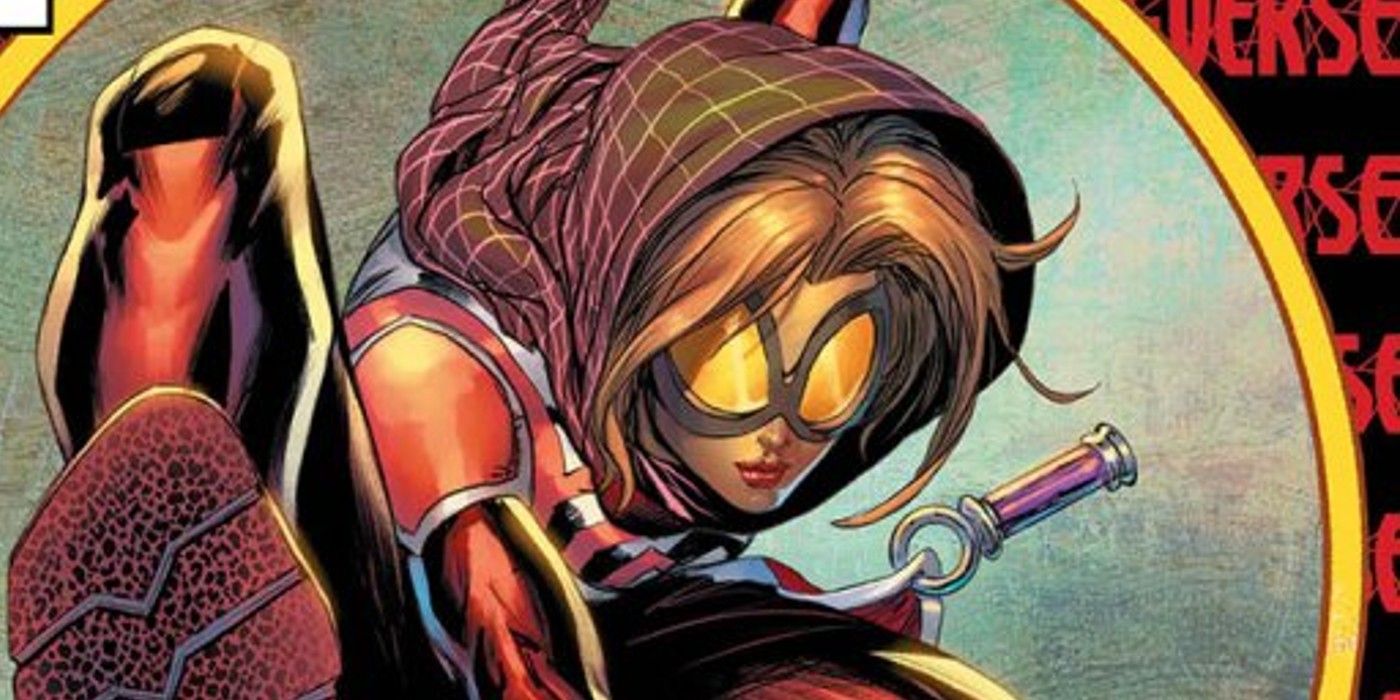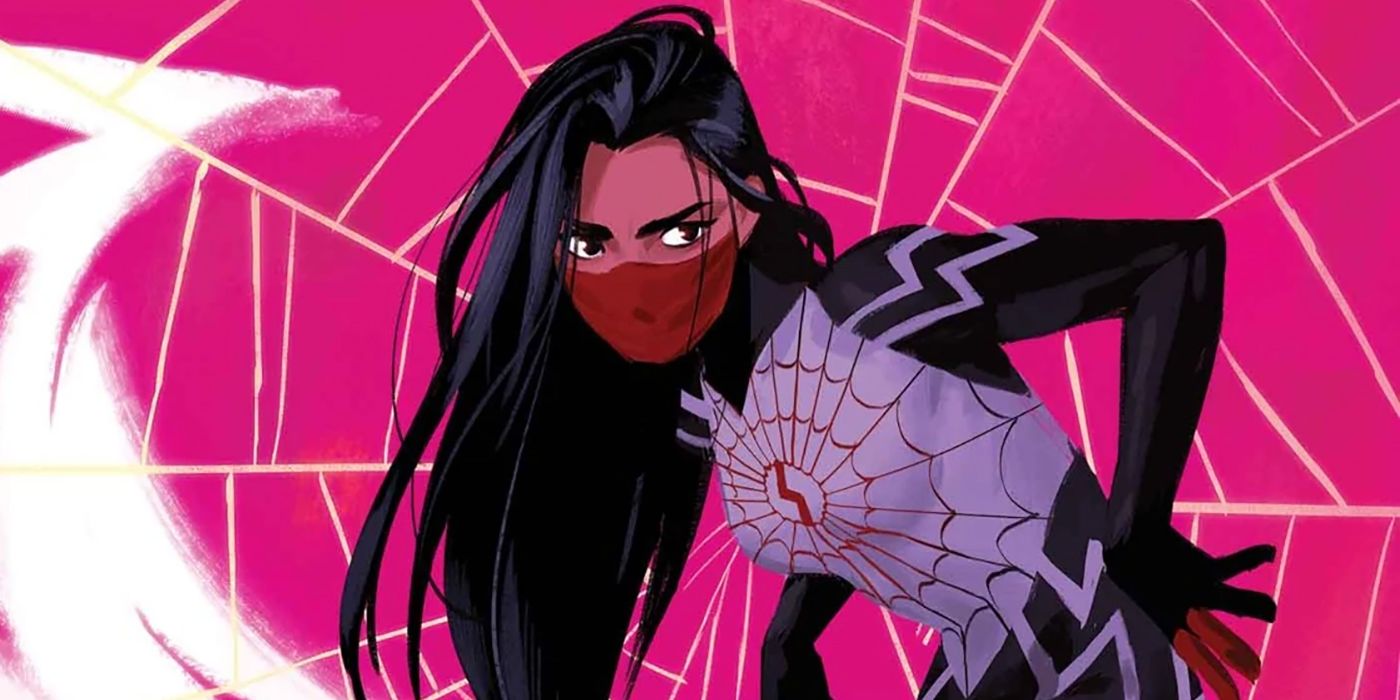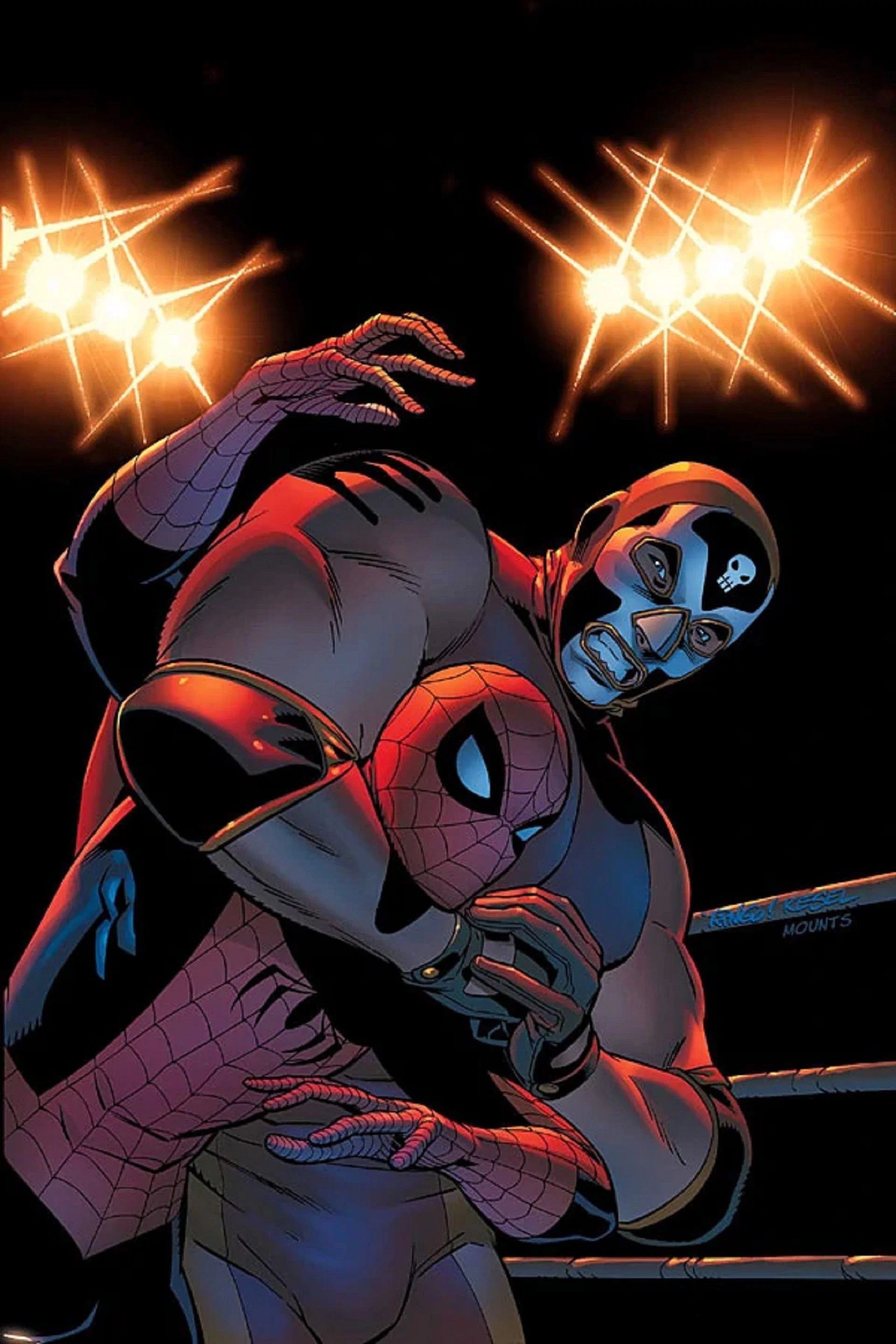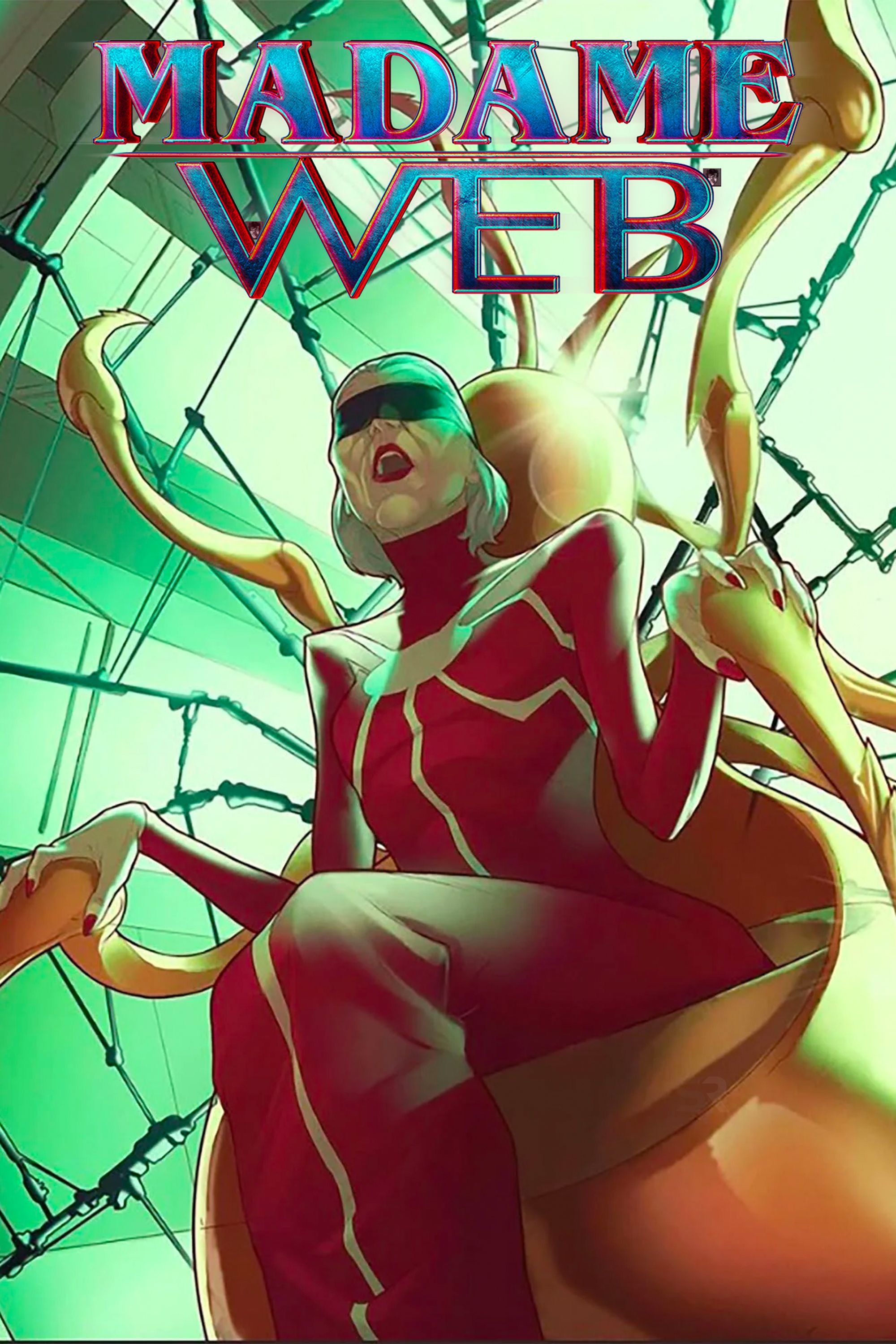Sony's Spider-Man Universe is expanding on to TV with Silk: Spider Society, but already it looks as though Peter Parker has been erased. Sony's Spider-Man Universe launched without Peter Parker, a controversial decision that meant Venom's origin story lacked any connection to Spider-Man. The franchise has been mostly successful to date, though; and now Sony has signed up to a deal with Amazon that will bring their Spider-Man Universe to TV, beginning with a series called Silk: Spider Society. Created by Dan Slott and Humberto Ramos, Silk was a classmate of Spider-Man's who was bitten by the same radioactive spider. It seemed difficult to imagine any version of Silk's origin story that didn't involve the wall-crawler himself.
The title of the TV series suggests Sony has indeed managed to erase Spider-Man, however. Silk isn't traditionally associated with the Spider Society at all; they're typically connected to an entirely different character, Araña. In the comics, Araña is a Spider-Totem who was activated by the Spider Society to join their war against a rival group, the Order of the Wasps. Combining the two superheroes like this means Sony can indeed erase Peter Parker from Silk's story, by presenting her as the totem activated by the Spider Society.
Marvel's Spider Society Explained
The Spider Society is dedicated to the worship and protection of Spider-Totems scattered across the multiverse. "So in almost all verses, you have Spider-Man, or a Fantastic Four, or a Tony Stark, or a Morbius," Morbius director Daniel Espinosa explained. "But they will be different in tone. That's not quite the way that the Marvel Cinematic Universe (is) approaching the idea, but they're remaining to some core truth. Then you have the second kind of legend, which is about the totem. Which is that, in all universes, there is a Spider-Totem. Which means that in all universes, there has to be a Spider-Man. Or a Spider-Woman." These Spider-Totems are connected to a mystical, interdimensional force known as the Web of Life and Destiny.
Spider-Man's multiverse is a dangerous place, however, because there are rivals to the Spiders - parasitic entities known as Wasps. The Spider Society is locked in an ancient and unending war with the Order of the Wasps, and they have learned how to activate a specific type of Spider-Totem, known as a Hunter, to act as their champion in this conflict. Araña was the chosen Hunter in the comics, but the titular reference to the Spider Society suggests that Silk will be the Hunter of Sony's Spider-Man Universe. This would effectively erase Peter Parker from Silk's origin story, along with that famous radioactive spider.
Why Has Sony Erased Peter Parker From Their TV Universe?
Sony's Spider-Man Universe seems to embrace the idea that anyone can be Spider-Man, as demonstrated by Miles Morales in Spider-Man: Into the Spider-Verse. In truth, Spider-Man has always transcended race and gender; Nicholas Hammond, who played Spider-Man in the 1970s The Amazing Spider-Man series, noted that Spider-Man's mask means he is a "racially-neutral character" in that he could be anybody behind it. The Spider-Verse takes this one step further, in that there can be Spider-Men who are Asian, British, or African; there can even be spiders who are women. It's likely Silk is being positioned as the primary Spider-Totem of Sony's Spider-Man Universe, taking Peter Parker's place.
It's easy to see why Sony would decide to take this approach. It means they can tell Spider-Man stories without worrying about competing with the MCU or even their own Spider-Verse films. But the decision to erase Peter Parker from Silk's story would surely be just as controversial as the decision to tell Venom's origin story without him. Hopefully it won't be long before Sony reveals more about Silk: Spider Society, confirming whether they have indeed erased Spider-Man from this universe.

